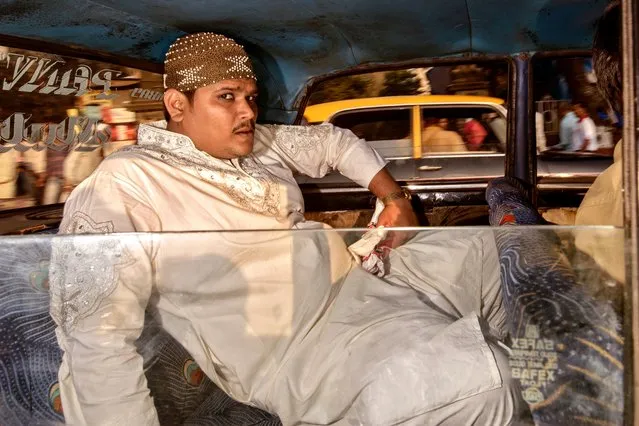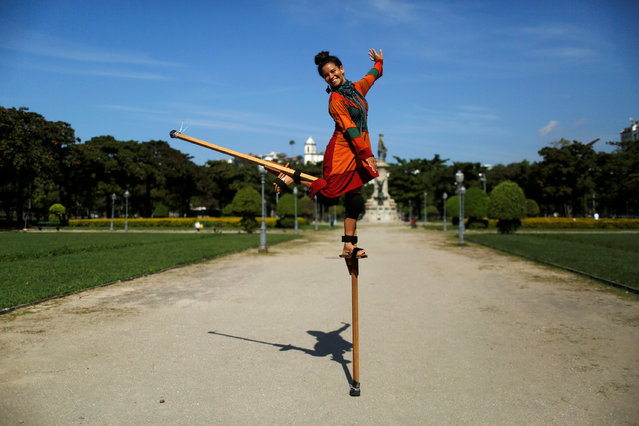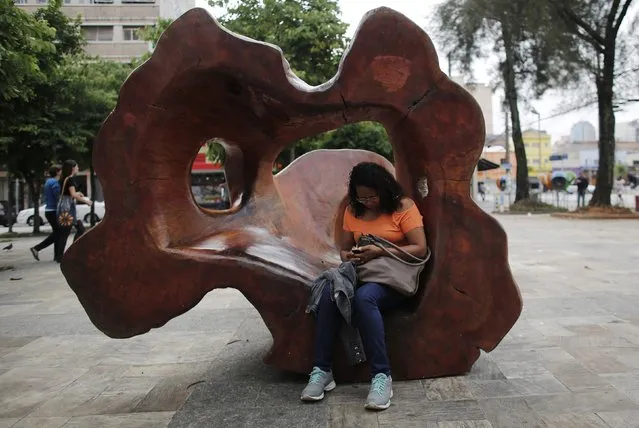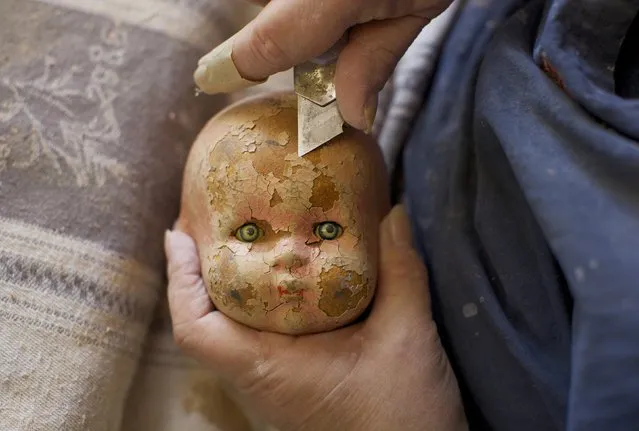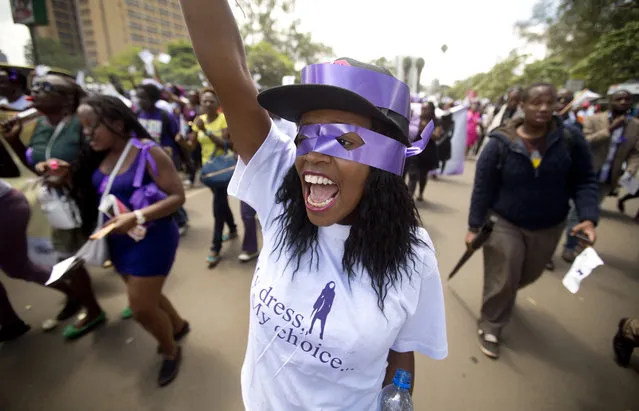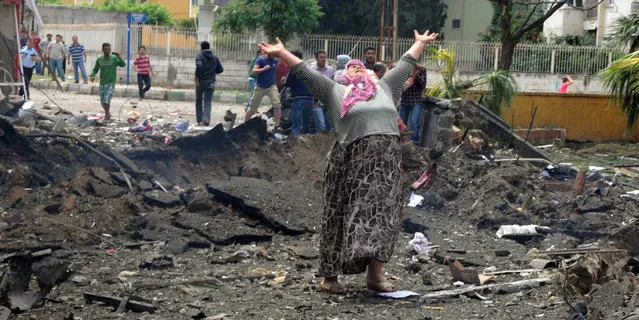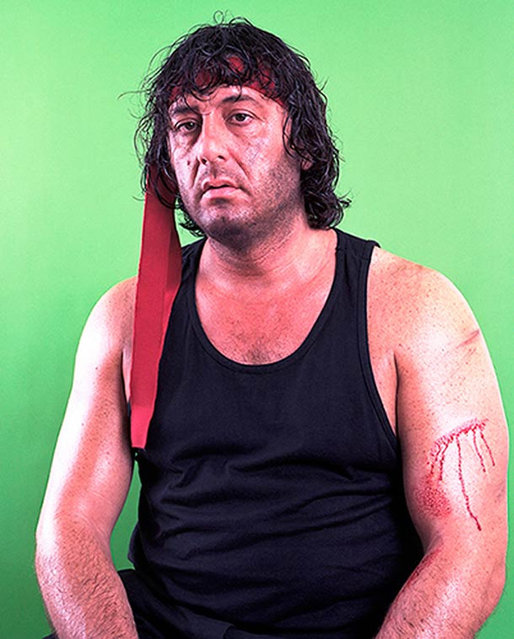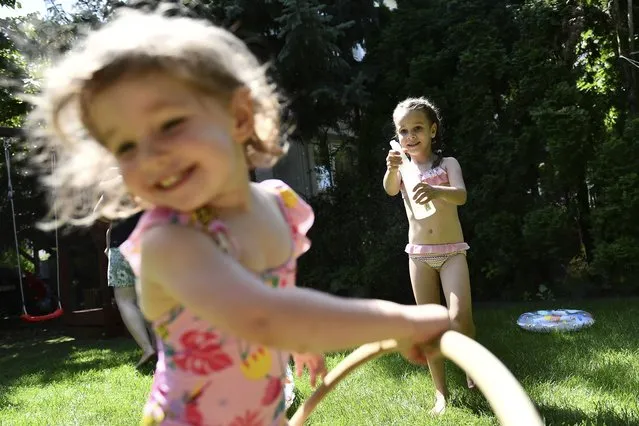
Children play in their grandmother's garden in a suburb of Budapest, Hungary, Thursday, July 21, 2022. Hungary has experienced several heat waves since mid June with day-time temperatures rising to 40 degrees Celsius and remaining at tropical levels through the night. In fact, the country recently shattered record for its hottest night ever when temperature of 25.4 C was measured in Budapest on July 26. (Photo by Anna Szilagyi/AP Photo)
10 Sep 2022 04:22:00,post received
0 comments

